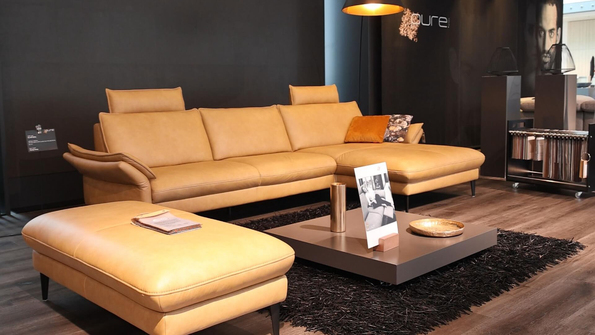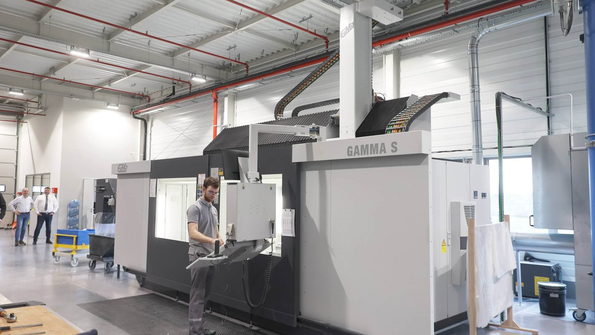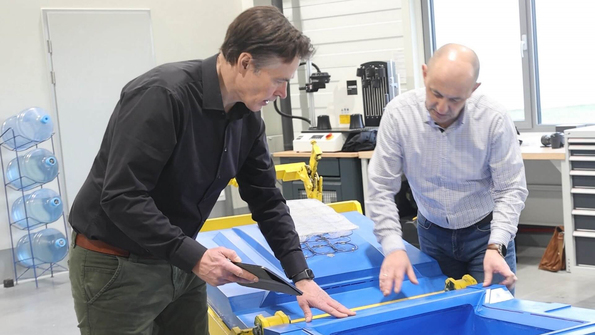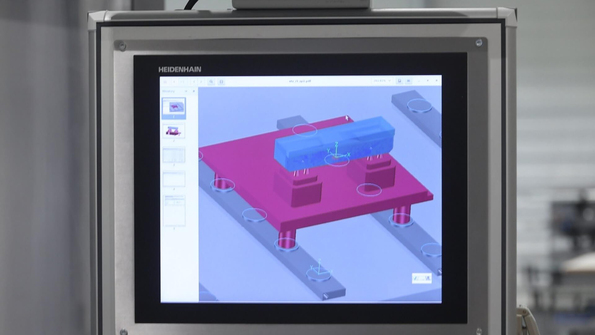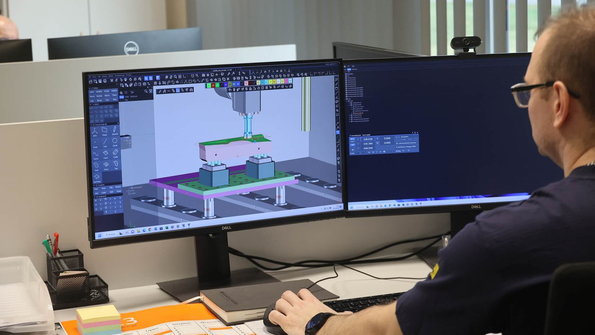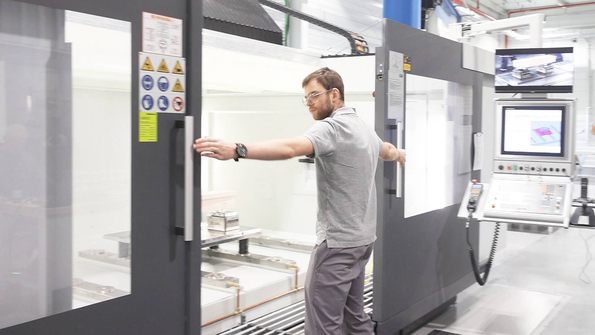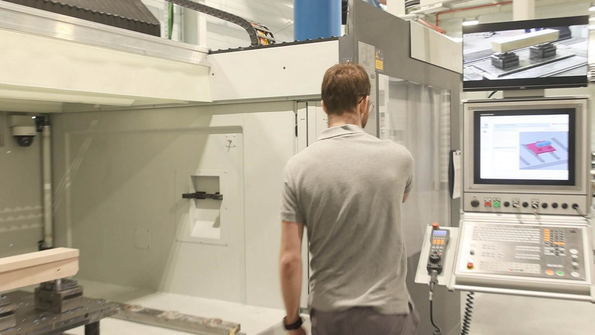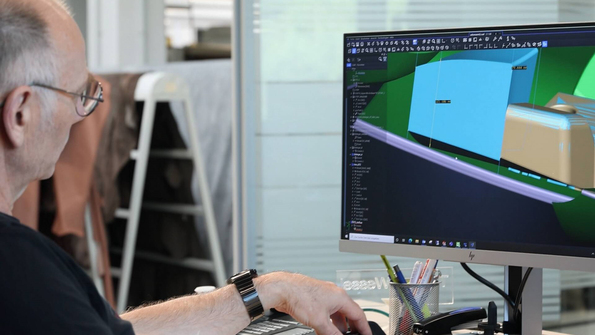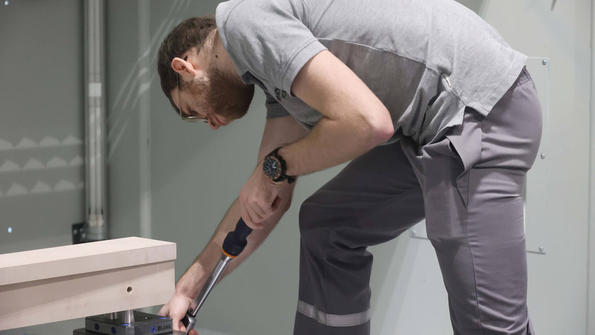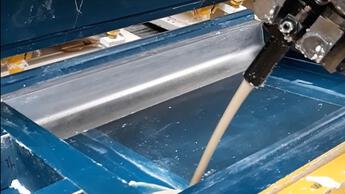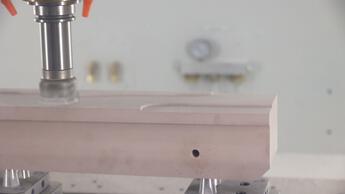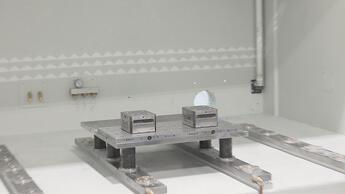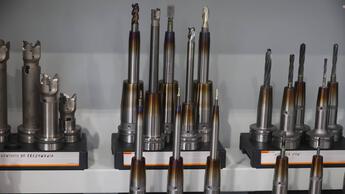Call us:
+1-248-524-0430
Title
Description
-
Software
-
CAM software
- Tebis Automill
- CNC programming
- CNC automation
- CNC simulator
- Multiple setup
- Robotic machining
- CNC drilling
- Deep-hole drilling
- Combined turn-milling
- CNC turning
- Turn-milling
- 2.5D milling
- 3D milling
- 5-axis milling
- Slot milling
- Trimming
- HPC milling
- HFC milling
- Circle-segment cutters
- Sinker EDM
- Wire EDM
- 3D laser cutting
- Laser hardening
- Laser weld cladding
- CAD software
- CAQ software
- MES software
- Products
- Stories about parts
-
CAM software
- Services
- Consulting
- Sectors
- References
- Company
- News
Contact

View video / contact form
Please select the Preference cookies to activate the display.
>Activate cookies
-
 Home References
Home ReferencesPolipol Group programs foam molds for upholstered furniture
The team chose Tebis 4.1 as their CAD/CAM system.
The Polipol Group, an upholstered furniture specialist, is establishing a new mold manufacturing department for foam molds, essentially on a greenfield site at the Polish production plant in Wagrowiec. In a new building, equipped with new machines and following a sophisticated concept. The team decided to use the Tebis CAD/CAM system – first Version 4 and now 4.1.
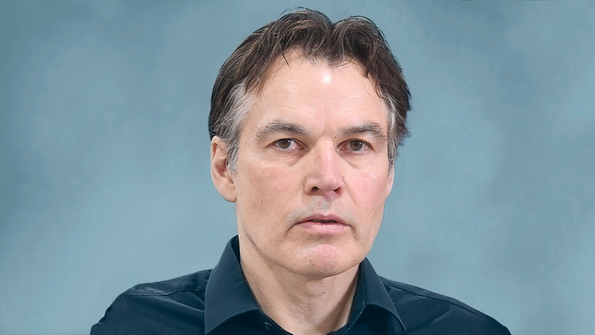 Peter Kalenka, Head of Mold Manufacturing/Molded Foam at the Polipol Group – Photo: Pergler MediaCompany
Peter Kalenka, Head of Mold Manufacturing/Molded Foam at the Polipol Group – Photo: Pergler MediaCompany
Polipol Holding GmbH & Co KG
Location
Diepenau, Germany / Wagrowiec, Poland
Emphasis
Tebis 4.1
Tebis Consulting
Tebis AG Process Division
Benefits- Faster, more flexible production
- Independence from external suppliers
- Modern machine pool customized from the ground up
- Intensive technical support/training from the Tebis AG Process Division
- Solid, comprehensive consulting from Tebis Consulting covering all aspects of establishing the unit
- Added value from Tebis 4.1. Specific benefits: Complete safety from collisions, feature technology
Industry
Mold manufacturing
Published
2023We had the feeling from the start that we were in good hands with Tebis – and this has proven to be true to the fullest extent. Tebis acts on our wishes and needs, and their experts always have an open door.
Peter Kalenka, Head of Mold Manufacturing/Molded Foam at Polipol GroupThe brands of the Polipol Group stand for quality workmanship and contemporary design. They can be found in nearly all leading furniture stores. The team relies on a high degree of vertical integration to meet their customers’ highest quality expectations. – Photo: Pergler MediaThe Polipol Group is a well-known manufacturer of upholstered furniture. Their collections find their way into living rooms through a wide range of brand names in German furniture stores. The furniture specialist has expertise in creating seating arrangements, sofas and individual armchairs. Everything is developed and designed in-house.
The mold manufacturing tradition in the Polipol Group is a little over a decade old. The mold manufacturing trade first entered the Group in 2012 with the acquisition of Hukla, the traditional brand for relaxed seating. The company has been establishing its own mold manufacturing section since 2018.A completely new greenfield mold manufacturing plant
Working with the experts from Tebis, responsible Polipol Group personnel identified the Eima Gamma S as the ideal machine for their tasks. It’s also distinguished by an excellent price-to-performance ratio. – Photo: Pergler Media"In the past, we ordered all the molds we needed for our upholstered parts externally from mold manufacturers in Germany and Poland," explains Peter Kalenka, Head of Mold Manufacturing/Molded Foam at the Polipol Group in Diepenau, Lower Saxony, Germany, which is the corporate headquarters of the upholstered furniture specialist. "Otherwise, we manufacture at a high technical level at Polipol, and we have a high degree of vertical integration."
Quality is the top priority in the manufacturing of furniture components. Customers are demanding when it comes to functionality, tactile sense and appearance. To consistently meet these key requirements while maintaining a high degree of flexibility, a well-equipped mold manufacturing plant was planned at the production site in Wagrowiec, Poland, halfway between Poznan and Bydgoszcz.
The engineering team from the Polipol Group first collected information. "One positive aspect was that we were able to start on a greenfield site without literally no baggage – in a new building constructed especially for mold manufacturing, with new machines and a fresh team," explains Kalenka. "At the recommendation of a machine manufacturer, we brought on-board support from Tebis Consulting and then from the Tebis AG Process Division to find the optimal solutions for the plant."The mold manufacturing project becomes a success story
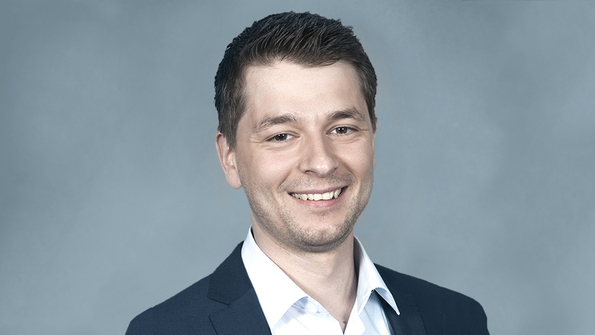 Tomek Kawala, Consultant at Tebis Consulting: From the initial analysis until handing over of the keys, the Tebis Consulting team headed by Tomek Kawala supported Polipol in establishing its in-house mold manufacturing operation. Photo; wort und formFor Tomek Kawala, a consultant at Tebis Consulting, the Polipol Group has many special features. "It started right from the initial contact. It’s’ unusual for such an intensive project to begin with a simple online inquiry via the website. We also had the privilege of supporting the establishment of a completely new foam mold manufacturing operation on a greenfield site, from its inception. Our extensive experience is an advantage. As consultants at Tebis Consulting, we all come from a practical background, and I had previously gained practical expertise with foam tooling. At first, we thought that the mold manufacturing operation would be installed in an existing building at the old site in Rahden. We ultimately decided on the construction of a new plant at the Wagrowiec site in Poland. Our task was to join forces with the Polipol Group team to design the process chains, from construction to machining and clear to assembly. However, our joint task also included selecting the right machines, determining employee selection criteria and analyzing the investment. The Polipol Group then implemented the results in close collaboration with the Tebis AG Process Division – and we’re still actively involved in specific support tasks and in ongoing coordination for our customers. The project at the Polipol Group has become a very good success story."
Tomek Kawala, Consultant at Tebis Consulting: From the initial analysis until handing over of the keys, the Tebis Consulting team headed by Tomek Kawala supported Polipol in establishing its in-house mold manufacturing operation. Photo; wort und formFor Tomek Kawala, a consultant at Tebis Consulting, the Polipol Group has many special features. "It started right from the initial contact. It’s’ unusual for such an intensive project to begin with a simple online inquiry via the website. We also had the privilege of supporting the establishment of a completely new foam mold manufacturing operation on a greenfield site, from its inception. Our extensive experience is an advantage. As consultants at Tebis Consulting, we all come from a practical background, and I had previously gained practical expertise with foam tooling. At first, we thought that the mold manufacturing operation would be installed in an existing building at the old site in Rahden. We ultimately decided on the construction of a new plant at the Wagrowiec site in Poland. Our task was to join forces with the Polipol Group team to design the process chains, from construction to machining and clear to assembly. However, our joint task also included selecting the right machines, determining employee selection criteria and analyzing the investment. The Polipol Group then implemented the results in close collaboration with the Tebis AG Process Division – and we’re still actively involved in specific support tasks and in ongoing coordination for our customers. The project at the Polipol Group has become a very good success story."Working together to create the concept
The high parting level simultaneously provides for venting of the mold in the cold foam process. The upholstery spring element that’s placed in the mold as an insert and then foamed over can be clearly seen. – Photo: Pergler MediaWorking together with the experts at Tebis Consulting, the specialists at the Polipol Group created their concept. The team from the Tebis AG Process Division specified the parameters, including the capabilities the mold manufacturing plant needed, the materials and dimensions that would be machined and to what accuracy, what machines should be procured and what skills the employees must have. "Starting from this concept, we then established the mold manufacturing plant while also keeping our budget in mind," says Kalenka. "We stayed true to the requirements we developed together, and the concept has since proven effective in practice."
The mold makers produce the foam molds for the cold foam process from polyurethane – mostly from bonded sheets that are then milled. The molds can also be made of aluminum, if necessary. Depending on the design and quantity required, they don't just produce a single mold; up to 14 sister molds ensure the necessary capacity for the foam manufacturing process.
After thorough research, the specialists identified the Eima Gamma S gantry milling machine as the optimal machine for machining the molds. The mold makers have been using this successfully since mid-2021. "We also focused on the price-to-performance ratio," Kalenka emphasizes. "We invested the remaining funds from the machine budget in a combination of zero-point clamping systems from AMF and Lang. This opens up a broad range of new options for us, especially in automation. And we save a lot of time in setup."
Setup as the key to greater efficiency
The operator can view the precise setup plan and the setup from Tebis directly on the machine’s control screen. This nearly eliminates all errors and allows the setup process to be completed quickly and efficiently. – Photo: Pergler MediaThe machine is well-equipped, and the tools have tool holders from Haimer and Hofmann. A Haimer shrink-fit machine is available. The rest of the shop equipment, including the workbenches, are from the Hoffmann Group and other manufacturers.
The dimensions of the molds that the furniture specialists can machine with this system are a maximum of 1,600 x 1,100 x 500 mm. "That’s completely sufficient for our needs," Kalenka affirms. "We manage most of our molds with a base area of roughly 800 x 900 mm. This still gives us plenty of reserve.”
The future goal is to ensure the machine operates as efficiently as possible with minimal setup time. "It will be a while before we can realize that," Kalenka acknowledges. "But we aren't under the same extreme pressure as some external mold manufacturers. What's important for us is that we can produce faster and more flexibly overall and that we’re more independent of our suppliers."
Tebis Consulting provided neutral advice about CAD/CAM systems. Despite that, the team at the Polipol Group decided on the design and programming solution from Tebis. The overall package from a single source was compelling, especially with the new functions in Tebis 4.1. Among other things, the CAD module provides easily accessible and coordinated functions for reverse engineering and for converting the data to a solid. The subsequent molds are derived from these solids using Siemens NX CAD software.
The target process for future mold production
The programs for the molds are generated in the mold manufacturing plant in Wagrowiec. The employees can access the key user’s knowledge in the main plant in Diepenau. Tebis and the experts at the Polish Tebis representative AMS International also provide advice and support. – Photo: Pergler MediaWorking with the employee designated as the key user and the new mold makers, the experts at the Tebis AG Process Division specified the future part classes and defined the processes, thereby modeling a target process for mold manufacturing in Wagrowiec.
The new mold makers are recruited from the company's manufacturing team. "We had young people among our trained employees who wanted more training in CAM programming and in machine operation," Kalenka explains. "These people have to master a very broad area – but they have both the skills and the will to grow into the role. And we’re pleased with our ‘home-grown’ specialists: They know the in-house workflows and they also know things like how the molds will be implemented in production. We have a lot of faith in our employees."
Sufficient time for training and familiarization
The dimensions of the molds that the furniture specialists can machine with the Eima Gamma S are a maximum of 1,600 x 1,100 x 500 mm. Most molds are currently managed with a base area of 800 x 900 mm, so there’s still plenty of reserve. – Photo: Pergler MediaThose responsible ensured right from the start that the employees who were affected by the changes were very closely involved in the solution and implementation process. They also ensured that those involved have sufficient time for training and for completing their tasks. As well as the necessary support for an in-depth training and familiarization phase.
"From the beginning we focused on comprehensive training. This dragged on a bit because of the COVID-19 pandemic, and we're still working on it," Kalenka reports. "On the one hand, we focused on our key user who supports mold manufacturing in Wagrowiec from Diepenau – and on the other hand on the support provided by Tebis, both from the experts at the Tebis AG Process Division and from the well-versed specialists at Polish Tebis partner AMS."
Massive personnel support in the initial phase
The screen above the control provides a real-time view of what’s taking place in the machining area. The key user in Diepenau can have these live images transmitted directly, enabling him to provide highly specific support if necessary. – Photo: Pergler MediaThis massive personnel support resulted in a very steep learning curve for the new mold manufacturing plant’s dedicated employees. "The Tebis user interface and logic is highly intuitive: for example, our first operator had never stood in front of a 5-axis milling machine before. He was able to complete the main tasks after just a short period of training and familiarization."
When setting up the processes and the key fundamentals for mold manufacturing, the Polipol mold makers also relied on service and expertise from Tebis. "Along with the specialists from the Tebis AG Process Division, we put in a lot of time generating comprehensive libraries of resources, including preset tools and clamping devices, and we also had Tebis remeasure the Eima Gamma S machine," Kalenka recalls. "That was a big effort, but it's been worth it."
Absolutely collision-free programs
The mold makers in the Polipol Group rely on Tebis: The CAD/CAM package makes it very easy to precisely derive the mold surfaces, and the template technology makes programming largely automated. – Photo: Pergler MediaThe mold makers also profit from the thorough data preparation for tasks like simulating the molds. "The sophisticated simulation was one of the main arguments for Tebis," Kalenka says. "The programs that are sent to the machines are absolutely collision-free. That’s essential for us."
In addition to increasing process safety, simulation also provides other important benefits. For example, it helps determine the best possible machining variant – starting from the ideal zero point to the milling strategies and paths and the optimal setup – without generating a single chip. This significantly reduces the time to the finished piece of furniture."
Another aspect is that Polipol doesn’t rely on standard "off-the-shelf" solutions. The product lines undergo constant development. "The furniture grows and changes with us," Kalenka stresses. "It’s very helpful that we can convert the characteristics of the upholstery into features, which allows us to reproduce the development beyond simply adjusting parameters. This saves a lot of work and time." Machining time is drastically reduced, as long as the data are continuously maintained and the status is kept up-to-date. "As soon as a geometry changes, we adjust it in the system," adds the mold manufacturing manager.
Growing to meet challenges and requirements
Zero-point clamping systems from AMF and Lang reduce the setup process to just a few minutes. The setup plan from Tebis is implemented precisely, enabling the workers to dispense with time-consuming measurements before machining. – Photo: Pergler MediaThis also means that the molds can "grow" and can represent entire families of parts in mold families with variable mold components and inserts. The NC templates are very efficient to work with, especially in Tebis 4.1, helping to quickly and efficiently implement design changes and completely new designs.
With more complete automation and a significantly increased throughput, the staff also expect a significant increase in demand for cold foam molds. Mold manufacturing in Wagrowiec plays a very central role in these plans.
"We had the feeling from the start that we were in good hands with Tebis – and this has proven to be true to the fullest extent," says Kalenka. "Tebis acts on our wishes and needs, and their experts always have an open door. And the support personnel are competent contacts when we’re faced with challenges that we can't solve on our own. We feel that we're being taken seriously, and that’s a good foundation for our daily work."
The molds for the cold foam molding process are currently still filled manually. This work will be mostly automated by a new system in the future. This will increase the potential that can be exploited with intelligently designed molds. – Photo: The Polipol GroupThe molds are currently made primarily from polyurethane sheets that are bonded together and then milled. In the future, the mold makers also want to manufacture molds in aluminum, especially for the new foam molding system. The system is also well-equipped to handle this. – Photo: Pergler MediaIntelligent combination: Zero-point clamping systems from AMF and from Lang ensure that machining can be started immediately after setup. This saves a significant amount of time, and the results can be reproduced at any time: for example, when making sister molds. – Photo: Pergler MediaProfileThe Polipol GroupUpholstered furniture from Polipol reflects top workmanship. Each individual product has its origins in model development at the headquarters in Diepenau in Lower Saxony. The optimal interplay of substructure, upholstery and cover fabric is precisely coordinated. Working with the greatest care, the highly trained specialists in the cabinetmaking workshop, the upholstery workshop and the sewing room meet the highest standards of craftsmanship. For example, only the highest-quality wood is used in the construction of frames. Experienced upholsterers use sturdy foams that are shaped in the foam molds produced in in-house mold manufacturing. Select covering materials complete the plant’s commitment to perfection in form and function.FocusFoam moldsThe foam molds at Polipol are made from polyurethane materials. The foam molds for the upholstery components of the furniture aren’t high-tech tools. For example, venting can be easily achieved through the parting surfaces. No complex interior for features like temperature control is necessary. In production, the furniture specialists use infrared elements to heat the molds from the outside.PerspectiveExpertise makes the difference!Tebis certainly has unique functions – especially in the new Version 4.1 – that show their strengths in die, model and mold manufacturing. But this powerful software package doesn’t stand alone: For Tebis, a key pillar of success in the industry is excellent service. Especially in matters of establishing new competencies and qualifying employees for a new task, services from the experts at Tebis Consulting and in the Tebis AG Process Division are often the key factor in a successful project for the client. Providing these service in a holistic approach and with technical depth, and living out this philosophy on a daily basis: The software provider in Martinsried, Germany, clearly doesn’t make it easy for other providers to compete at this level. Richard Pergler

